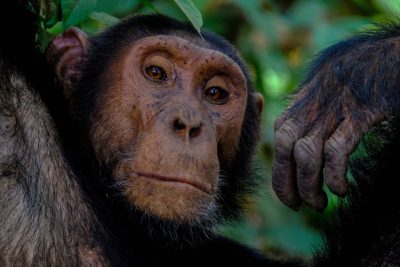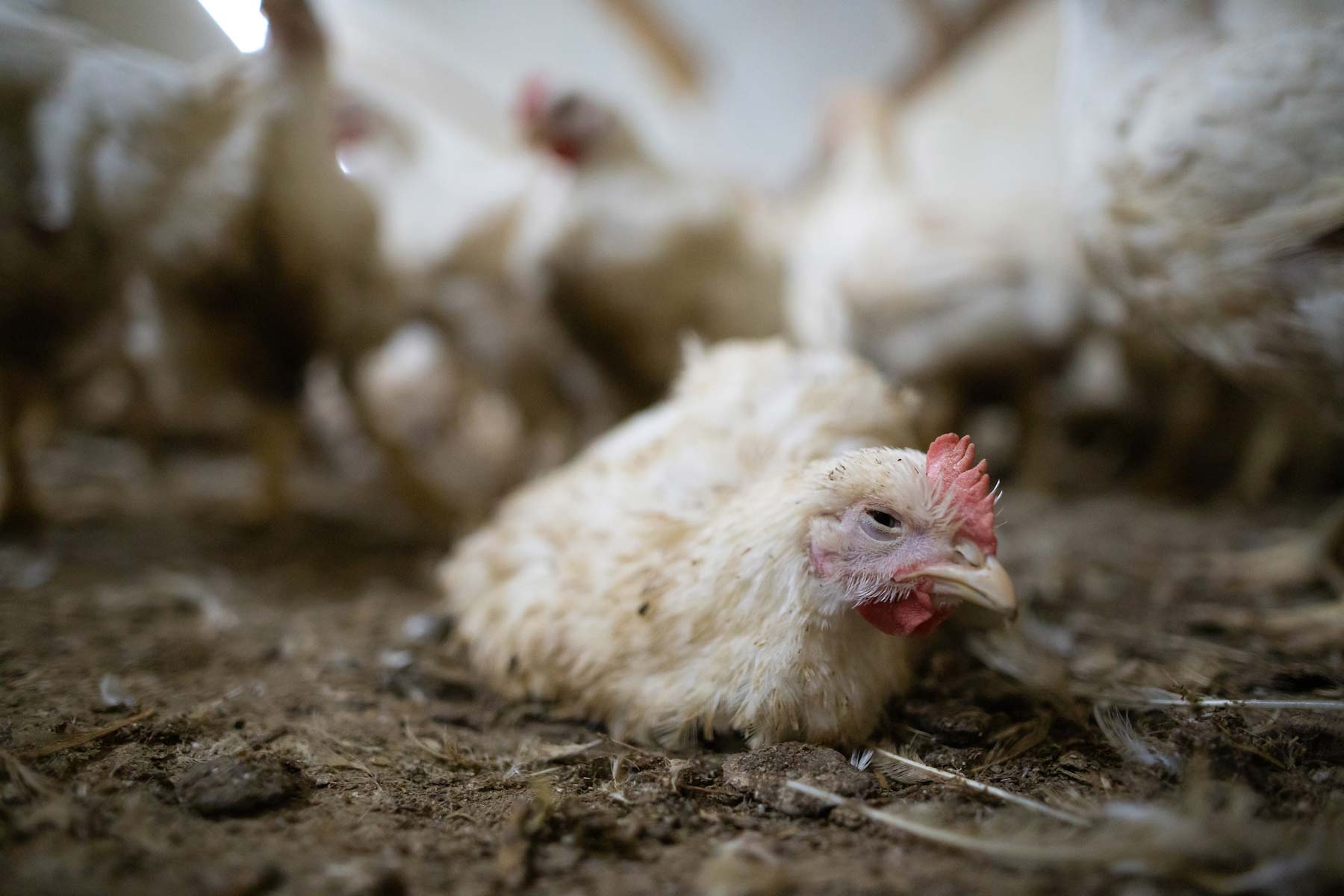Estimated reading time: 8 minutes
There is a misconception still held by some people that we need meat to be healthy, and that we are somehow ‘designed’ to eat lots of it. Here we examine the major dietary changes that have taken place throughout human evolution, and how the recent rise in meat consumption could bring about our downfall.
Do Humans Need Meat?
We don’t. Every nutrient we need for great health can be found without eating meat or other animal products. In fact, research shows we tend to do better without it. Countless scientific studies have now connected our consumption of animal products to an increased risk of chronic disease, including heart disease, type 2 diabetes, and some cancers. Through our work, we have met many inspirational people who hit rock bottom before making changes to their diets that saved their lives. But for so many others who do not have access to the information or to wholesome plant-based foods, or who cannot break away from old destructive patterns and traditions, the cost can be dear indeed.
A Brief History Of Meat-eating
Research about early diets tends to highlight meat consumption, and this could be because bones are better preserved than plants and are therefore more likely to be found at archaeological digs, hence the bias. In reality, early hominin diets would have varied widely, depending on what era we are talking about, where they lived in the world, what was available and the season.
When archaeologists examined the Gesher Benot Ya’aqov site in northern Israel, which was occupied 780,000 years ago either by Homo erectus or a closely related species, they found evidence of at least 55 different edible plants. But, as for the dietary balance between meat and plants, there is no definitive answer. Says Peter Ungar of the University of Arkansas: “Human evolution is a work in progress, and diets likely varied along a continuum in both time and space.”
But Amanda Henry of the Max Planck Institute for Evolutionary Anthropology in Leipzig, believes hominins were “probably predominantly vegetarians”. And that is because our ancestors – like us – need plants to survive but they could be healthy with very little or no meat at all. They just needed a variety of plant foods and sufficient calories.
The Climate Shift
There is little dietary evidence about the very earliest hominins – those who lived 6-7 million years ago – but it is likely they ate fruits, seeds, barks, flowers, tubers, some insects and a little meat if they came across it – much like the diet of chimpanzees today. But then around 2.5 million years ago something happened: Our ancestors started eating more meat.
It’s been theorized that this dietary change was due to a shift in the climate. At that time, the Earth got hotter and drier, which would have made the plants relied upon for food scarcer. The forests that had provided an abundance of fruits shrank while grasslands thrived, and with grasslands came grazing animals.
The Tool Invention
The use of tools which started around 2.6 million years ago also aided meat consumption. Before then, eating meat had been challenging as our ancestors could only have picked so much flesh from a bone with their fingers. But by stripping flesh away from the skeleton, cutting it up and scraping out the soft marrow, they found a way to eat more meat than ever before.
The Scavenging
There remains debate about whether early hominins scavenged or hunted but archaeologists excavating a two million-year-old site in Kenya found evidence of both, and this is the earliest known evidence for both behaviors. Still, it is not known which was the primary activity, and whether scavenging was more commonly passive (coming across a carcass) or active (scaring off the predator after a kill) but either would have allowed for increased meat consumption.
The Fire
The discovery of how to control fire at least 800,000 years ago (though there is some evidence it may have been earlier) created another change in our diets. Not only could hominins cook tubers, making them more digestible, they could kill off the sickness-inducing pathogens in meat. Evidence shows that better nutrition around this time led to physical changes: Both the digestive tract and teeth of Homo erectus decreased and their brains grew larger.
The Agricultural Revolution
If we assumed that the advent of farming improved the diet and wellbeing of our foraging ancestors, we’d be wrong. As our forebears settled, their diet shifted once again, becoming less varied, and for the first time ever they experienced a caloric excess. This era initially brought with it a decline in both stature and life expectancy compared to the foragers who had gone before.
What Are Humans Supposed To Eat Naturally?
There is no one time in history we can point to and say ‘that is what we are supposed to eat today’. Our ancestors ate what was available, not what they were ‘designed’ to eat. Those who lived on a shoreline, for example, ate aquatic mammals and fish. Those who lived in the Central Kalahari ate a lot of sugary melons and starchy roots. Our evolutionary success was in our ability to consume a wide range of foods but that doesn’t answer the question: which ones should we be eating today?
If we look to our physiology, how our bodies have evolved and what foods they can best assimilate, we’ll see our guts are like those of monkeys and apes, and – if we are steered by what our guts are telling us – we would be largely plant-based, with some insects and perhaps the occasional bit of meat. This is a long way from today’s typical diets.
Research consistently shows that the standard western diet causes a raft of sickness, disease, debilitating conditions and premature death. We may be able to tolerate a little meat but we have never eaten the quantities commonly eaten today, and it is certainly taking its toll.
Eating a whole food plant-based diet helps prevent, halt and even reverse some of the biggest killers, including heart disease, and type 2 diabetes. And when we base our meals around plants – fruits, legumes, vegetables, salads, herbs, spices, nuts, grains and tubers – we not only reduce disease risk, we have a better chance at living longer, too.
So Why Do Humans Still Eat Meat?
We eat it because we were taught to do so by our parents who were taught to eat it by theirs. And even though we as modern people, with facts and research at our fingertips, may know some of the damage it causes to our own health, to the planet and to animals, we eat it because we are products of cultures and societies that inherited – and have normalized – meat-eating. Most of all, perhaps, we eat it because we like it, and not because we need it.
Why Shouldn’t You Eat Meat?
Clearly, the consumption of meat has played a key role in our evolutionary history but if it does not serve us now can we use those big brains we have developed and change our diets for the better?
Research consistently finds that a varied plant-based diet reduces the risk of some of the most lethal diseases we face: heart disease, type 2 diabetes. All processed meat is carcinogenic. All red meat is ‘probably’ carcinogenic. And this is only the beginning of the dangers presented to modern humans by our consumption of meat.
Most of the meat eaten today comes from animals selectively bred and intensively farmed in cramped, filthy surroundings where illness, disease and death are commonplace. Millions of animals succumb to the harsh and stressful conditions they are forced to live in. In order to stem the losses, farmers worldwide use vast amounts of antibiotics and this overuse raises the risk of antibiotic-resistant pathogens emerging. Already, according to the CDC someone in the United States gets an antibiotic-resistant infection every 11 seconds and every 15 minutes someone dies. With the very real threat of losing effective antibiotics, we are paying a high price indeed for our consumption of meat.
And then there is the threat that eating animals poses to the whole world through pandemics. With three quarters of all emerging infectious diseases in people coming from animals, it is madness to imprison animals inside factory farms. And when we destroy wild animals’ habitats as we often do to make more land available for farming animals, we increase the risk once again. The Intergovernmental Science-Policy Platform on Biodiversity and Ecosystem Services confirms: “Destruction of habitat and encroachment of humans and livestock into biodiverse habitats provide new pathways for pathogens to spill over and increase transmission rates.”
If these weren’t good reasons to stop eating meat, then how about climate change? Animal farming – which is, of course, driven by meat consumption – is responsible for 14.5% of all human-generated greenhouse gas emissions. Our dietary choices are driving the extremes of temperature, forest fires, and floods that take lives and destroy communities. We know that to limit the devastation, we must change the way we eat.
Conclusion: Can Humans Survive Without Meat?
We can. And we thrive! The question really should be: how much longer will we survive – individually and as a species – if we persist in farming animals and eating the amount of meat we do today? Eating meat may have played a key role in the evolution of humans but if we don’t stop eating it now, it could also bring about the end of our species.





